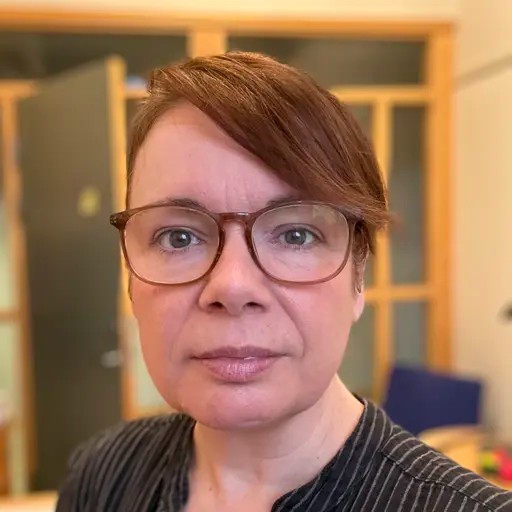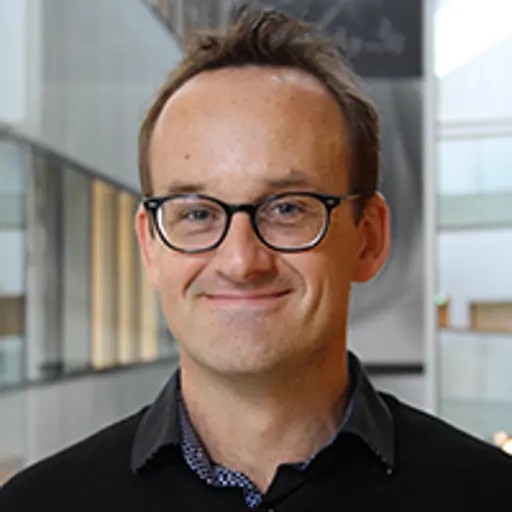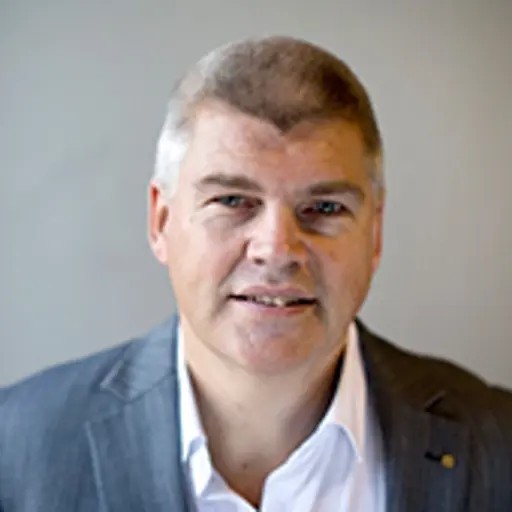
An impressive number of actors from the industry attended WACQT's workshop to learn more about how the center’s quantum research is now being put to concrete use in an increasing number of areas. “It is good for us to see all the work that is going on within WACQT and to be updated on the progress, but also to understand which use cases that others in the industry are working on and which could be relevant to us as well,” says Maria Stranne from SKF, one of many curious business representatives present.
Societal interest in the possibilities of quantum technology is increasing – a tendency quite noticeable at WACQT's industry workshop, which took place at the end of March. The number of people registered for the workshop was undeniably high. Nearly 90 global actors from business and academia showed up at Kollektorn to learn more about how quantum technology is already being used by the center’s established industrial partners - and to gain insights into how the technology could develop their own operations.
The program also included updates on ongoing national quantum initiatives, such as the newly started WACQT testbed, by which Swedish companies and researchers can test both quantum algorithms and hardware.
Inspirational use cases
Maria Stranne, Director of Digital Engineering and Innovation at SKF, took part to learn more about the possibilities of quantum technology and what a potential collaboration with WACQT would entail.

“We follow developments in quantum technology with great interest. Within SKF, we work a lot with materials research, so simulations with quantum technology are very interesting for us going forward, but we can also see potential areas of application in the field of optimization,” says Maria Stranne.
And to her, the case-based presentations held by existing partners, such as Astra Zeneca, SAAB and Jeppesen, came with great takeaways.
“It is good for us to see all the work that is going on within WACQT and to be updated on the progress, but also to understand which use-cases that others in the industry are working with and which could be relevant for us as well,” explains Maria.
Growing interest in quantum technology
During WACQT's six-year lifespan, the center has been supported by three different scientific coordinators. With a coordinator role that spanned between 2018 and 2020, Dr. Philip Krantz was the first in line. He sees great progress at WACQT in recent years, and not just scientific ones. According to him, WACQT has now become an established community for the promotion of Swedish quantum technology.

“In recent years, the first generation of WACQT PhD students have completed their dissertations, they have started to build more advanced quantum processors and thus also started to take on new types of engineering challenges that are associated with the scaling of quantum processors. Even the industry collaborations that began in 2018 have transitioned from start-up to more established contacts, which paves the way for long-term Swedish competence in quantum technology that stretches between academia and industry,” says Philip Krantz.
The apparent popularity of the workshop spaces is a sign of the times, Philip believes. He can see how the general interest in quantum technology is growing, in Sweden and internationally. And in that regard, he’s certain that WACQT has an important role to play.
“When WACQT arranged the first industry workshop, the interest was not nearly as great. But this year there weren’t enough spaces for everyone, apparently. For a small country like Sweden to be competitive in the long run, you need access to many different skills, which is something that WACQT has the opportunity and funding to achieve. It is therefore important that the center continues to spread knowledge and mediate contacts between different parts of the ecosystem,” says Philip.
Research infrastructure crucial for spin-off companies
Another sign of WACQT's progress is the birth of the many spin-offs within the center. And to them - and other players in industry and academia - the newly built quantum computer testbed is now open for business.
“A positive development is also all the start-ups that have been established within WACQT and which are important when trying to build long-term competence in Sweden and maintain that competence within the country's borders. For small companies with limited funds to be able to build up their business and test different product prototypes, I believe that the testbed built at Chalmers will play a crucial role,” says Philip.

One of the numerous spin-off companies that have been formed in the wake of WACQT is SCALINQ, that develops hardware for quantum computers. Zaid Saeed is the CEO of SCALINQ and he is pleased to see such a wide range of global players from the industry gain insight into the work being carried out within WACQT. He participated in the workshop to learn more about how the research within WACQT already today is of concrete use to the center’s established partners.
“WACQT have constructed a robust and feasible research roadmap ahead to bring the research community one step closer to utility grade quantum computing. I also wanted to learn a bit more about the industrial efforts conducted already today by existing industrial partners that are using WACQT's research results to learn how to utilize quantum computing in their respective fields,” says Zaid Saeed.
And for companies like SCALINQ, the research infrastructure built within WACQT has already come to play a crucial role.
"WACQT has set clear technical milestones and established an infrastructure required to achieve them. They have also clearly demonstrated their active engagement and leading role in helping companies such as SCALINQ accelerate their R&D efforts by encouraging research collaborations and establishing the very well-constructed Chalmers Next Labs facilities," Zaid explains.

- Director Industrial Relations, MC2 Operations Support, Microtechnology and Nanoscience

- Full Professor, Applied Quantum Physics, Microtechnology and Nanoscience

- Full Professor, Quantum Technology, Microtechnology and Nanoscience